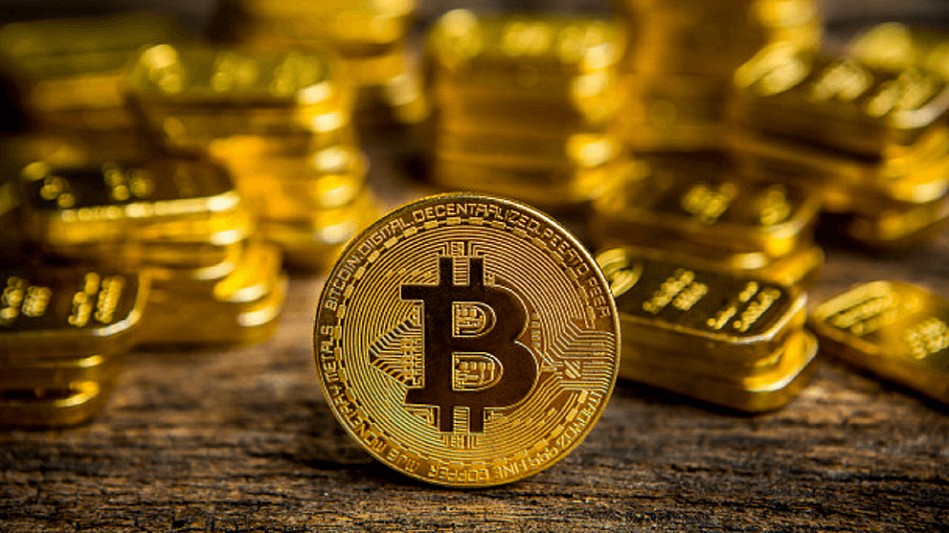Bitcoin vs. Gold: Two Experts Clash Over Investment Value
08.09.2024 12:00 2 min. read Alexander Stefanov
The debate between Bitcoin (BTC) and gold as investment assets has reignited with legendary trader Peter Brandt and longtime crypto critic Peter Schiff exchanging views.
Schiff recently criticized Bitcoin ETFs for their relatively modest gains of under 10% since their launch, in contrast to gold’s 24% increase over the same period. He highlighted gold’s established role as a safe-haven asset, particularly during economic volatility.
In response, Brandt urged a longer-term perspective, suggesting that short-term performance should not overshadow the broader trends.
He shared a chart indicating a potential head and shoulders pattern that he believes could favor Bitcoin over gold futures in the long run.
Peter, your comments need to be put into the perspective of a long term chart. The $BTC/GC_F ratio could dip into the high teens, but massive continuation inverted H&S is forming — favoring Bitcoin https://t.co/Gld8cb2RQV pic.twitter.com/rwJgY24b57
— Peter Brandt (@PeterLBrandt) September 6, 2024
Brandt’s analysis suggests that despite Bitcoin’s current volatility, it may outperform gold in the future.
Schiff, however, maintains his stance that gold remains the superior asset. He views the same chart as supporting gold and argues that Bitcoin, which he describes as the “anti-gold,” is a less reliable investment. Schiff believes that the market has misunderstood inflation data, leading to an unjustified decline in gold prices, which he expects to correct as inflation continues.
This exchange underscores the ongoing debate about whether Bitcoin, often called “digital gold,” could eventually rival or surpass traditional gold as a store of value, especially during uncertain economic times. While Brandt sees Bitcoin as a potential long-term winner, Schiff remains confident in gold’s historical stability.
-
1
Elon Musk Unveils His Own ‘America Party,’ Signals Pro-Bitcoin Political Shift
07.07.2025 11:40 2 min. read -
2
Bitcoin Blasts Past $121,000 as Institutions Fuel Rally—Will Altcoins Follow?
14.07.2025 8:15 2 min. read -
3
Bitcoin: What to Expect After Hitting a New All-time High
10.07.2025 14:00 2 min. read -
4
Peter Brandt Issues Cautious Bitcoin Warning Despite Bullish Positioning
10.07.2025 20:00 2 min. read -
5
Vanguard Now Owns 8% of Michael Saylor’s Strategy, Despite Calling BTC ‘Worthless’
15.07.2025 17:09 2 min. read
Global Money Flow Rising: Bitcoin Price Mirrors Every Move
Bitcoin is once again mirroring global liquidity trends—and that could have major implications in the days ahead.
What is The Market Mood Right Now? A Look at Crypto Sentiment And Signals
The crypto market is showing signs of cautious optimism. While prices remain elevated, sentiment indicators and trading activity suggest investors are stepping back to reassess risks rather than diving in further.
What Price Bitcoin Could Reach If ETF Demand Grows, According to Citi
Citigroup analysts say the key to Bitcoin’s future isn’t mining cycles or halving math—it’s ETF inflows.
Is Bitcoin’s Summer Slowdown a Buying Opportunity?
Bitcoin may be entering a typical summer correction phase, according to a July 25 report by crypto financial services firm Matrixport.
-
1
Elon Musk Unveils His Own ‘America Party,’ Signals Pro-Bitcoin Political Shift
07.07.2025 11:40 2 min. read -
2
Bitcoin Blasts Past $121,000 as Institutions Fuel Rally—Will Altcoins Follow?
14.07.2025 8:15 2 min. read -
3
Bitcoin: What to Expect After Hitting a New All-time High
10.07.2025 14:00 2 min. read -
4
Peter Brandt Issues Cautious Bitcoin Warning Despite Bullish Positioning
10.07.2025 20:00 2 min. read -
5
Vanguard Now Owns 8% of Michael Saylor’s Strategy, Despite Calling BTC ‘Worthless’
15.07.2025 17:09 2 min. read


